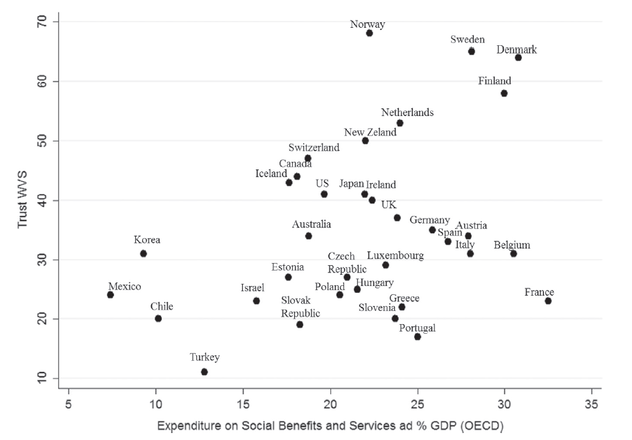|
The economic importance of the welfare state has increased strongly over time, which has generated a vast academic literature studying the determinants of (preferences towards) redistribution.
This article argues that citizens' trust in their fellow citizens can play a central role for welfare state support, because it buttresses the belief that others will not use the welfare system inappropriately. Using the fourth wave of the European Social Survey, we confirm a strong positive association between interpersonal trust and welfare state support (controlling for institutional trust). We also show that: i) this link is driven at least in part by the mechanism discussed above ii) causality runs from interpersonal trust to welfare state support (using a sub-sample of second generation immigrants) iii) the effect of interpersonal trust appears conditional on the perceived quality of a country's institutions. Published Version - Free Version Presentations:
Media: New York Magazine (US), Jewish Journal (US) Comments are closed.
|
